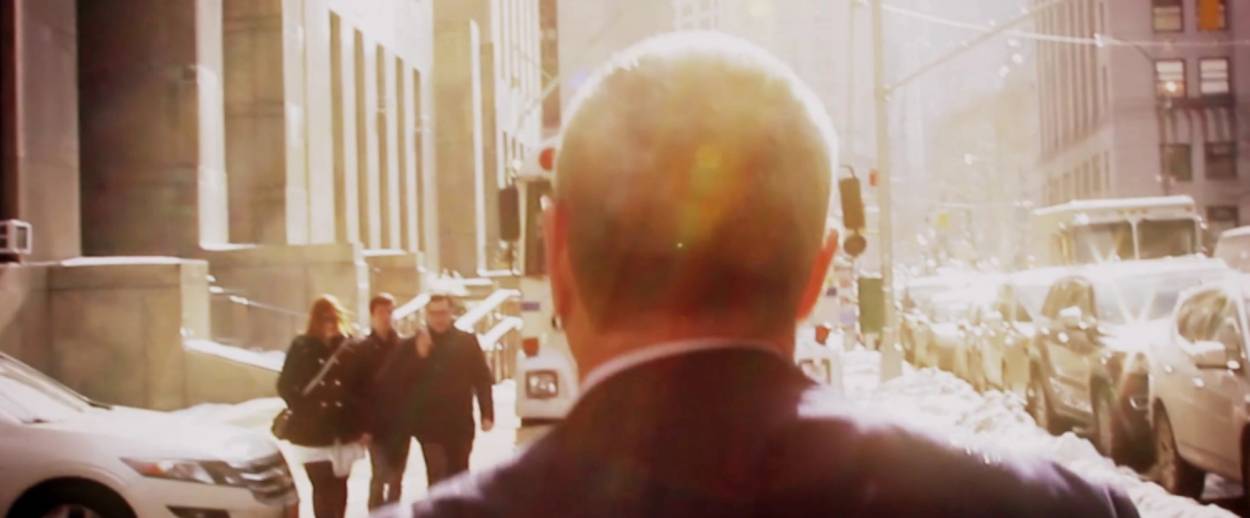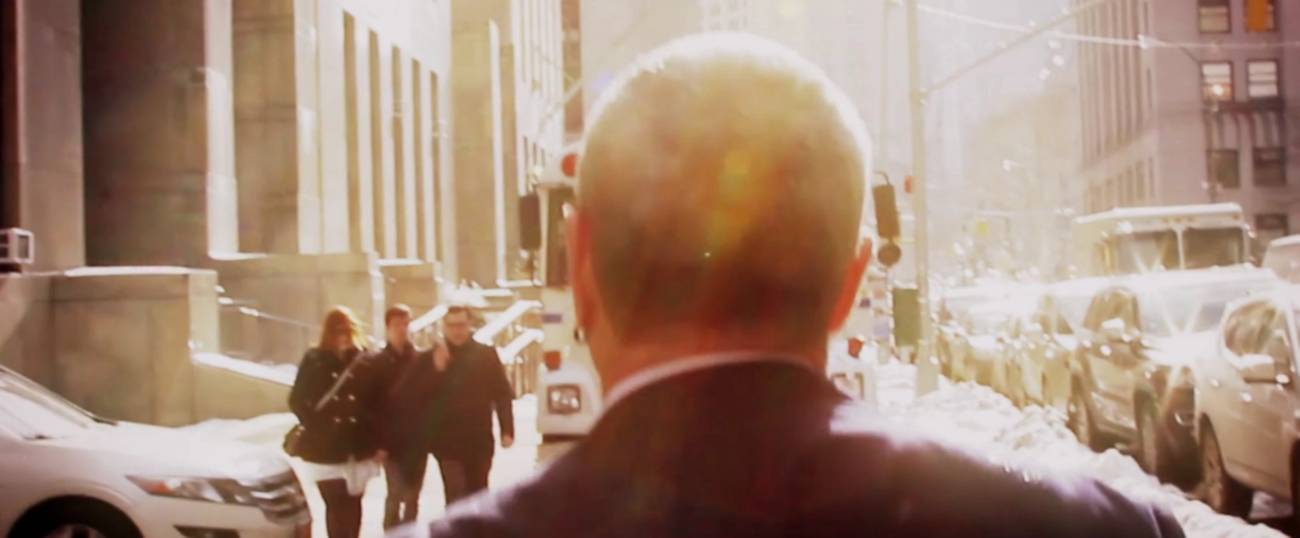A Most Interesting Lawyer
‘Rothman,’ a documentary about a defense lawyer for ‘bad guys’ in NYC, recently screened at the NYC DOC film festival. It’s just one of many short docs that are well worth your time.




DOC NYC, America’s largest documentary film festival, has been happening all this week in Manhattan. It’s a big deal: In 2013 and 2014, more than half the nominees for in the Documentary Short category at the Oscars were screened here; at this year’s closing night, Hillary Rodham Clinton will attend the premier of Once and For All, a documentary about the 1995 Beijing Women’s Conference where Clinton gave a historic address on women’s rights.
But I was curious to see that one of the films showing at the festival this year hit a little closer to home. It’s about about a guy I know only slightly: Frank Rothman, a parent in my kids’ former elementary school. I’d always been curious about what this dude’s deal was. In a not-very-Jewish modern-day East Village public school, he seemed like a character from another era: He wore silk suits, a giant diamond in one ear, leather and silver bracelets. His laugh was as loud as his look, and he had the kind of old-school, gruff New York accent you don’t hear much anymore. Once I asked him where he was going after kindergarten drop-off, and he told me “Riker’s.” He told me he was a defense lawyer, and I Googled when I got to work: His roster of clients included hip-hop stars, a New York Knick, a WWE women’s wrestlers, and various and sundry drug dealers. I’d seen his wife at drop-off, too, often accompanied by their family’s very cute dog. She was beautiful, glamorous even in workout gear, and gracious. And I wondered, in my nosy journalist way: What was up with this family?
The 19-minute documentary Rothman, directed by Nader Sadre, offers a tantalizing semi-answer. We meet Frank Rothman as he’s wheeling and dealing, bragging about his defense work. “We’re not searching for the truth,” he says. “I’m here to win.” On camera he wears a pirate-y hoop in his ear rather than a diamond; with his stubble and impressive nose, he looks piratical. We learn that his dad was a Fordham grad who ran a pharmacy on the Lower East Side, but Rothman senior’s primary gig was as a bookmaker and gambler. Frank grew up hearing from everyone about how awesome his father was, but his dad missed Passover seders (“Everyone said, ‘He’s at the office,’ which meant he was in a little apartment somewhere taking bets.”), and Frank grew up befriending the children of his various girlfriends. His father was distant and emotionally abusive, but, as Frank notes wistfully in the film, “You strive as a little boy to shine in his eyes.” Becoming a defense lawyer was a way to impress his criminal father. “I wanted to help bad guys because bad guys were the good guys…at least in my mind,” he says.
The film uses re-enactments to show scenes from Rothman’s childhood, a technique I always dislike; family photos and Rothman’s own compelling voice would have been enough. We can see that Rothman senior is round and soft, compared to his son’s roughness and angles. Frank was apparently unable to shake his father’s influence; as a young lawyer he himself was arrested for “promoting gambling” after providing his father with customers. He wound up unable to represent his own clients because he was in jail. “You go from the hero saving Daddy to the schmuck,” he says ruefully.
Only after his father’s death does Rothman come to terms, it seems, with his own sense of anger and betrayal. We see him boxing hard, almost viciously, in a gym with a big Israeli flag on the wall. We hear about his determination to be a better father than his was. And we learn about a case he’s currently involved in, with an extremely unsettling client facing a 12-years-to-life sentence for attacking his court-ordered psychiatrist. The client is crazy and dangerous, with furious, glittering eyes we see in (re-enacted) police sketches. Frank talks about sitting far enough away from him at the courtroom table to be able to scramble away if he attacked. Ultimately, Frank wins a better outcome than he ever could have hoped: the jury despises the physician, who they see as condescending, and find the guy guilty of one minor charge (he’s sentenced to time served and immediately released). “The system was beat…but the system worked, because the jury followed the law as instructed,” Rothman concludes, with a quizzical look, knowing that the truth is a complicated animal.
The film concludes with Frank looking at a letter of apology his father wrote him. He reads it every year or so, he says. The camera pans over words like “I messed up” and “really sorry” and “loved always” and the sprawling signature, “Pops.” (In quotation marks.) Rothman says, “It’s just another form of manipulation.” Again, we still don’t—and can’t—know the truth.
Rothman is part of a slate of shorts called LARGER THAN LIFE, biographies of intriguing, charismatic characters. All the films in it are fascinating. Tiger Hood (directed by Christopher André Marks) looks at an obsessive urban golfer; Pink Boy (directed by Eric Rockey, boyfriend of Sandi Dubowski, who himself directed the seminal Trembling Before G-d, about LGBT Orthodox Jews) is a look at a small boy in a rural Georgia town who wants to be a girl; The Reinvention of Normal (directed by Liam Saint-Pierre) is about a sweet, odd artist/inventor who baffles his middle-class British parents; Dunk Tank Clowns (directed by Daniel McGuire) is a deceptively deep little movie about carnival clowns who like “having a little soapbox” from which to observe the fair and insult the passersby. It also talks about the history of dunk tanks, which in vaudeville days featured black clowns and were marketed with the phrase, “Hit the Trigger, Drown the…” (you can finish that sentence yourself). Heavy Fog Tonight (directed by Nathan Reich) is a look at a strange old boiler engineer at Pratt Institute who is obsessed with steam whistles and steamboat history. I realized afterward that this old man, who has experienced so much loss, has been the subject of news stories lately; he’s the chief engineer who students fought (successfully) to save from last-minute eviction from his on-campus home eviction by Pratt administrators looking to gin up more dorm space. Check documentary listings in your town for these films, shown individually or together; they’re all worth your time.
Marjorie Ingall is a former columnist for Tablet, the author of Mamaleh Knows Best, and a frequent contributor to the New York Times Book Review.